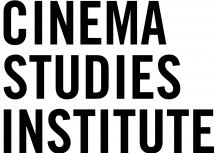Call for Papers: A Teaching Companion to Silent Cinema
Call for Papers: A Teaching Companion to Silent Cinema
Edited by Liz Clarke and Martin Johnson
Due by Dec. 15, 2021
Film studies programs big and small have a common course: film history. While programs divide film history courses in different ways—some by time period, others by geography—they all address, if only for a few weeks, silent cinema. These courses are rarely taught by researchers of silent film, and a reliance on textbooks and allusions to the best known silent films mischaracterize the period. In A Teaching Companion to Silent Cinema, we hope to challenge these narratives of the first decades of cinema through rich, engaging short essays on films that expand our sense of the very possibilities of the medium. This collection will take what silent film researchers already know–that the period from film’s invention in the late 19th century to the transition to sound in the 1930s is among the diverse, dynamic, and complex–and make films that more fully represent this period accessible to teachers and students of film history.
Canonical histories of silent cinema have, with few exceptions, focused on films made by white men in the United States and Europe. Filmmakers such as D.W. Griffith, Charlie Chaplin, and Sergei Eisenstein are lionized, while women, people of color, and filmmakers from small nations are ignored. Historical epics and slapstick comedies are celebrated, while a multitude of other genres and modes of filmmaking are skipped entirely. Although scholars, archivists, and critics are actively seeking to correct these oversights in their research, writing, and programming, the most widely used textbooks in the field continue to emphasize this older narrative. When students and teachers seek out diverse films, they often have trouble finding material to contextualize what they’re seeing, particularly short essays focused on individual films.
With this call, we are seeking essays (3,500 to 5,000 words) on feature films, and notes (1,000 to 1,500 words) on short films that represent the diversity of silent film cultures. These scholarly essays will provide context to the film, information about the filmmakers, background information, and a concise analysis of the film. These texts can be used to complement commonly used film history textbooks or in conjunction with theoretical essays. A few guidelines:
- One proposal per submitter. We want this collection to reflect the diversity of scholarship in the field as well.
- Proposed films should be readily available to instructors, through DVD, BluRay, digital repositories, or other sources.
- Ideally, your proposal should discuss a film that you have successfully screened to undergraduates. We are seeking to introduce students to films that will excite and engage them.
- We are seeking essays that challenge our sense of the film canon, while remaining accessible. While we welcome all proposals, here is a non-exhaustive list of some of the films we would like to include:
- Mario Roncoroni, Filibus (1915), Italy
- Enrique Rosas, The Grey Automobile (1919), Mexico
- Francis Ford, The Craving (1918), USA
- Frances Marion, The Love Light (1922), USA
- Oscar Micheaux, The Symbol of the Unconquered (1920), USA Jean Epstein, Coueur Fidèle (1923), France
- Robert Wiene, The Hands of Orlac (1924), Austria
- Lotte Reiniger, The Adventures of Prince Achmed (1926), Germany Dorothy Davenport, Linda (1929), USA
- Teinosuke Kinugasa, A Page of Madness (1926), Japan
- Wu Yonggang, The Goddess (1934), China
- Mário Peixoto, Limite (1930), Brazil
- Norbert A. Myles, The Daughter of Dawn (1920), USA Holger-Madsen, Trip to Mars (1918), Denmark
- Marion E. Wong’s The Curse of Quon Gwon (c. 1916-17), USA Cleo Madison, Eleanor’s Catch (1916), USA
- Yevgeni Bauer, The Dying Swan (1917), Russia
- E.A. Dupont, Piccadilly (1929), UK
Please send 300-word proposals, a 50-word bio, and access information for the feature-length or short film you would like to discuss to mlj@email.unc.edu and lclarke@brocku.ca by December 15, 2021. Acceptances will be sent by January 17, 2022, and essays will be due by May 30, 2022.
proposals, a 50-word bio, and access information for the feature-length or
Archives
Membership Services / Adhésion
To join or renew with FMSAC, please click here to access Membership Services.
Pour se joindre à l'ACÉCM ou pour renouveler votre adhésion, cliquez ici pour accéder aux services aux membres.
For more information about membership benefits, click here.
Pour plus d'informations sur des avantages d'adhésion, cliquez ici.











